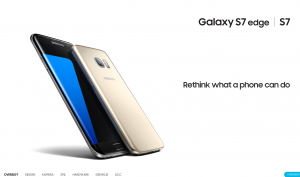Header Title
Rethinking what we call phones
The mobile phone started as a phone, but has evolved into a Swiss Army knife of technology capabilities. Shouldn’t our conceptualising of this key item evolve too?
The mobile phone was once what the name says – designed solely for communication between two people over a distance. Today, improved technology combined with digitalisation means phones are used for a plethora of different purposes – for social contact and dating, to listen to music and for all forms of entertainment, as a camera, as a computer and gateway to all the world’s information, as a banking and payment device, as a car key and access device, as a navigation tool, etc.
The list is virtually endless. But it’s still called a phone.
A 2016 Samsung ad slogan for the Galaxy S7 declared that we should rethink what a phone can do. And hit the nail on the head., because we don’t really have a word for what modern phones can really do. The “phone” bit is often the very least of the capabilities built into a modern smartphone. And without the words, it can be difficult to sell the message.
Rethink what a phone can do
Mobile, cellular or smart?
Ten years (or so) ago, the discussion about mobile phones mostly centred around whether they were to be called “mobile” or “cellular” phones. That discussion got easily parked as a British/European and American linguistic quirk.
Then the discussion became irrelevant when new technologies brought us the “smartphone”, paving the way back to a shared standard for the terminology. But now that pretty much everybody (well, … except my mum) has a smartphone, the moniker loses its real meaning, because it’s a comparison with the old phones that could really only do one thing – make and receive calls. And new generations of users won’t have any idea of what that comparison involves, because the smartphone is their baseline.
Mobile is everything
From adjective to noun?
Perhaps we’re now looping back, so that the adjective that originally merely supplemented the “phone” noun now becomes the noun descriptor in its own right?
One of the biggest events in the industry now bears the name the Mobile World Congress, whereas it was once called the 3GSM World Congress – a name rooted in technology (which is rapidly outdated). ´The 2016 Mobile World Congress in Barcelona bore the title “Mobile is Everything”, and the picture below shows Mr Facebook on stage against a backdrop highlighting a whole spectrum of digitally based capabilities, whose only common denominator is that they are mobile – a word with the big advantage that it is both device-independent and technology-independent.
Barcelona actually markets itself as the Mobile World Capital, emphasising the whole spectrum of digital empowerment, transformation, innovation and disruption, and making it quite clear that their policy-making pundits aren’t just talking about the ability to conduct a voice conversation with someone over the air waves.
So perhaps “mobile” will be the new term of choice?
Cultural archaeology?
This whole discussion may well be a waste of both time and grey matter. Popular culture and technological development move and morph a whole lot faster than our vocabulary. Words mean what we want them to mean, especially in the ephemeral world of popular culture and consumer tech.
“Video” is used to denote virtually any digital mash-up of moving pictures, even though it really relates to a pre-digital tape technology now mostly still found in our grandparents’ living rooms, chained to a huge box called a television.
The words we use for these kinds of devices are really a cultural archaeology exploration through discarded technologies. So perhaps “phone” will live on nevertheless, even though it’s a major misnomer spiralling towards the junkyard of history. “Less hassle” terminology solutions are often those with best chance of survival in a busy world, regardless of semantic accuracy or pedantic hair-splitting.


